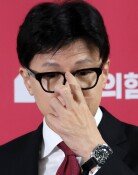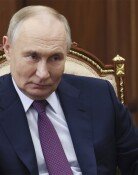What manufacturing companies’ exodus from China means
What manufacturing companies’ exodus from China means
Posted November. 21, 2024 08:23,
Updated November. 21, 2024 08:23
The automobile industry is known as ‘the flower of the manufacturing industry.’ There are over 30,000 parts that fit in a car, from small springs that are barely noticeable to the unfamiliar stabilizer. The materials used are diverse, including steel, non-ferrous metals, rubber, glass, plastic, and carbon fiber.
Steel is known as ‘the rice of industry,’ a simile that describes its importance as an essential material. The steel industry's competitiveness is directly related to the growth and job creation of the overall manufacturing industry. This is because steel is the basic material for major manufacturing industries such as automobiles, construction, shipbuilding, home appliances, and machinery.
Over the past three decades, China has taken the lead in absorbing ‘flowers and rice’ all over the world. Attracting global automobiles and steel companies, China has become the ‘world’s factory.’ It is evident that this became the foundation for China's rapid growth.
However, the ‘Chinese exodus’ of global automobile and steel companies, particularly Korean companies, has been witnessed. On Sunday, Hyundai Steel decided to sell its Beijing subsidiary, which was founded in 2003. POSCO Group announced on Nov. 7 that it will sell its plant in China, which was built in 1997. Earlier last year, POSCO Group also sold off a factory in Guangdong Province. Dongkuk Steel sold a 90% stake in its Chinese corporation to the Chinese local government in July last year. In July, Nippon Steel, a Japanese steel company, also suspended a 20-year joint venture with a Chinese company.
The move by steel companies had been predicted to some extent, as their core customers, which include automobile companies, withdrew from China first. As sales in China plummeted following the Terminal High Altitude Area Defense (THAAD) relocation in 2016, Hyundai Motor Company sold its Beijing Plant 1 in 2021 and its Chongqing Plant in January this year. Japan's Honda Motor Company decided to suspend operations at three Chinese plants and is considering selling them. Nissan Motor Company closed its factory in Jiangsu Province in June.
The withdrawal of global automobile and steel companies is viewed differently from different from capital flight. While the movement of financial capital is common, the relocation of automobiles and steel, which accompany large-scale production facilities, is directly related to the existence of the company and is thus based on conservative decision-making. Their movement ultimately means that the world's factory that had driven global growth is closing.
The relocation of automobile and steel companies appears to be related to China's return to its former political/economic systems. China was able to become the world's factory due to thorough self-reflection. China accepted the capitalist system after the death of Mao Zedong, who ruled the country for 27 years. China's highest authority was replaced every 10 years based on its democratic process.’ At the same time, it provided global companies with a predictable business environment. China would never have become the world's factory by continuing to embrace communism.
We have no say in China's change. Eventually, the world’s factories will close, and it's time to deal with change. It is very fortunate that Korean companies are moving more quickly than others.
Headline News
- US approves supply of landmines to Ukraine
- Democratic Party moves to impeach prosecutors over non-indictment of first lady
- Record job losses for workers in 40s highlight economic struggles
- Myung suspected of arranging meetings during South Gyeongsang trip
- Guardians’ Stephen Vogt wins AL Manager of the Year







